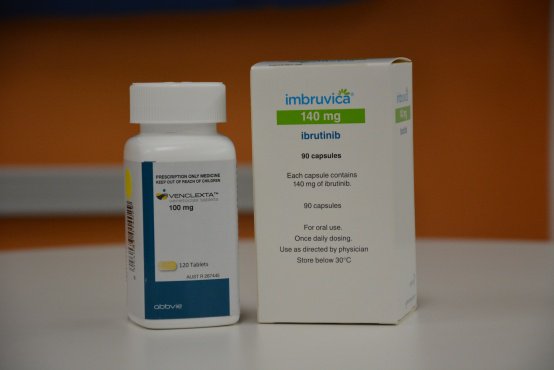A breakthrough drug with its origins in Melbourne is driving a major shift in the treatment of blood cancers. Venetoclax was developed from scientific discoveries made at the Walter and Eliza Hall Institute of Medical Research, and Melbourne scientists continue to lead its clinical trials which are showing dramatic results in hard-to-treat patients with Chronic Lymphocytic Leukaemia (CLL) and Mantle-Cell Lymphoma (MCL).
“The development of venetoclax – from basic science through to international clinical trials with practice-changing results – provides a strong example of how Australian cancer researchers and clinicians can lead the world,” says Professor Andrew Roberts, a clinical haematologist at RMH and Peter Mac, researcher at the Walter and Eliza Hall Institute and University of Melbourne, and co-designer of the AIM study.
“Venetoclax selectively targets BCL-2, essentially causing cancerous cells to simply melt away, in many instances.”
Read more about the latest Peter Mac and Royal Melbourne Hospital trial results here: https://www.petermac.org/news/melbourne-drug-blood-cancer-game-changer
